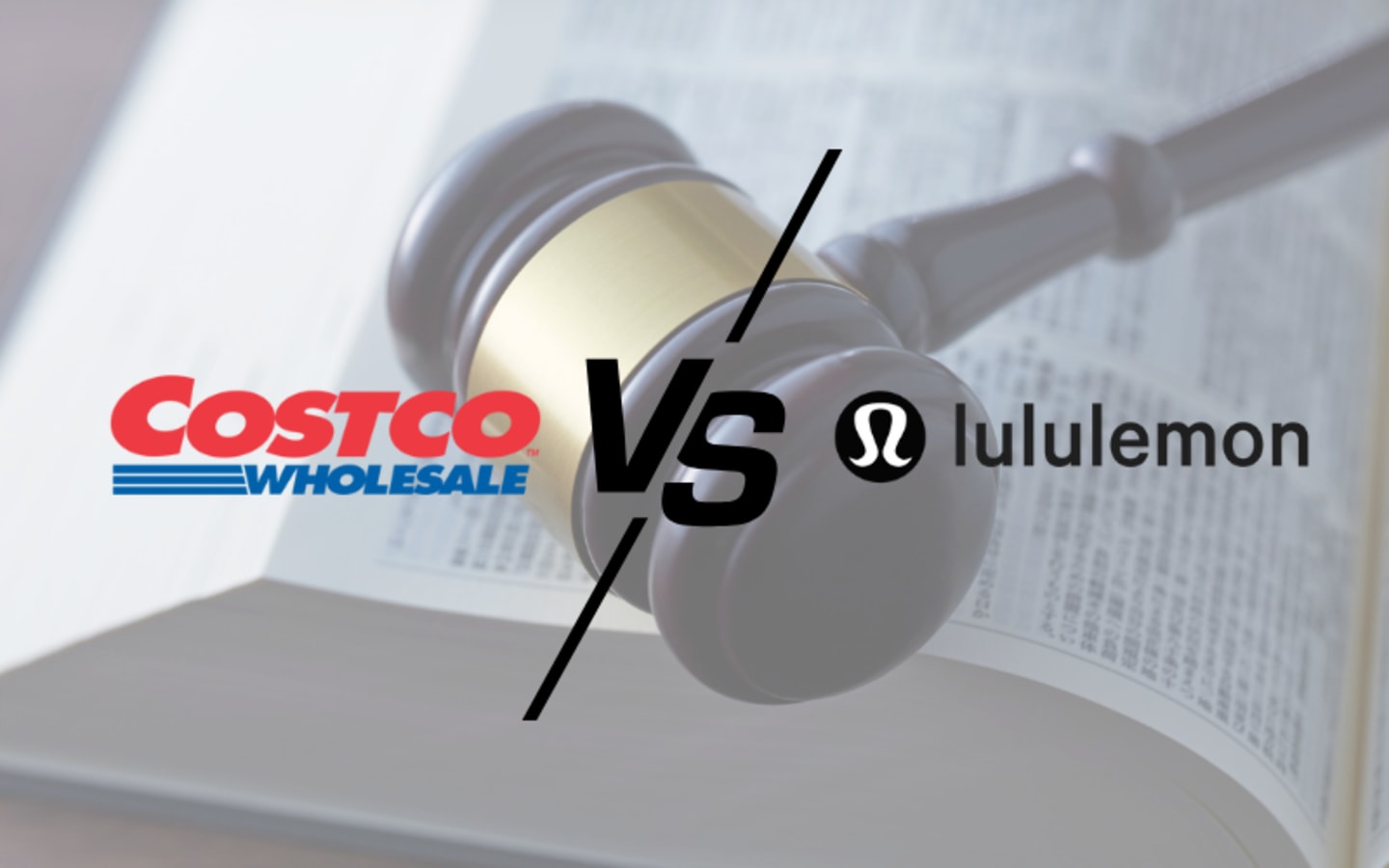Lululemon, the Canadian company known for its high-quality athletic wear, has filed a lawsuit against Costco, accusing the retail giant of selling knockoff versions of its popular clothing. The case, filed in a California federal court on June 27, 2025, claims that Costco’s clothing under its Kirkland brand copies Lululemon’s designs, potentially misleading shoppers into thinking they’re buying authentic Lululemon gear. This legal battle raises questions about brand integrity, consumer trust, and the fine line between imitation and infringement in the retail world.
The lawsuit centers on specific items in Costco’s clothing lineup, including sweatshirts, jackets, and pants sold under the Kirkland label. Lululemon alleges that these products are direct imitations of its well-known Scuba hoodies, Define jackets, and ABC pants. According to the complaint, Costco’s items are so similar that they could confuse customers into believing they’re purchasing genuine Lululemon merchandise or that Lululemon has partnered with Costco to produce these clothes. The lawsuit points to articles from major outlets like The New York Times and The Washington Post, which have described Costco’s products as “dupes” of Lululemon’s, reinforcing the claim that the designs are too close for comfort.
Lululemon’s argument hinges on its intellectual property rights. The company says Costco’s clothing violates its patents and trademarks, which protect the unique designs and branding of its athletic wear. These protections are critical for a company like Lululemon, which has built a loyal customer base through its reputation for quality, fit, and style. The lawsuit suggests that Costco’s alleged copies not only undermine Lululemon’s brand but also exploit its market position by offering lower-priced alternatives that mimic the look and feel of Lululemon’s premium products.
A spokesperson for Lululemon emphasized the company’s commitment to defending its brand, stating, “We take the responsibility of protecting and enforcing our intellectual property rights very seriously and pursue the appropriate legal action when necessary.” This isn’t the first time Lululemon has taken legal action to protect its designs. In 2021, the company sued Peloton, alleging that the fitness company copied its workout leggings and bras. That case shows Lululemon’s willingness to fight for its intellectual property, and the Costco lawsuit appears to follow a similar pattern.
Costco, however, has not yet responded publicly to the allegations. Spokespeople for the retailer did not immediately comment on the lawsuit, leaving many questions unanswered about how Costco plans to defend itself. The company’s Kirkland brand is known for offering high-quality products at budget-friendly prices, often competing with premium brands by providing similar features at a fraction of the cost. Whether Costco’s clothing truly crosses the line into infringement or simply offers a comparable alternative will likely be a key point of contention in the case.
The lawsuit, officially titled Lululemon Athletica Canada Inc v. Costco Wholesale Corp, was filed in the U.S. District Court for the Central District of California under case number 2:25-cv-05864. Lululemon is seeking two main remedies: an unspecified amount of monetary damages to compensate for the alleged harm to its brand and a court order to stop Costco from selling the disputed clothing. If successful, the injunction could force Costco to pull the items from its shelves, potentially impacting its Kirkland clothing line and its reputation among shoppers who value its affordable offerings.
For consumers, this case highlights the importance of understanding what they’re buying. Lululemon’s products, like the Scuba hoodie or ABC pants, are designed with specific features—think stretch, durability, and comfort—that have made them favorites among those who prioritize performance and style in their activewear. Costco’s Kirkland brand, while popular for its value, may not offer the same level of craftsmanship or brand prestige. The lawsuit suggests that some shoppers might be misled into thinking they’re getting Lululemon-quality gear at Costco prices, which could erode trust in both brands.
The legal battle also sheds light on a broader issue in retail: the rise of “dupe” culture. Retailers like Costco often produce affordable versions of high-end products, appealing to budget-conscious shoppers who want the look without the price tag. While this practice is common, Lululemon argues that there’s a difference between inspiration and outright copying. The company claims that Costco’s alleged knockoffs are designed to confuse consumers, capitalizing on Lululemon’s brand recognition to drive sales. This accusation could spark a larger conversation about where the line is drawn between fair competition and intellectual property theft.
As the case moves forward, it will likely involve detailed comparisons between Lululemon’s and Costco’s clothing. Experts may examine everything from fabric choices to stitching patterns to determine whether Costco’s products infringe on Lululemon’s patents and trademarks. The outcome could set a precedent for how similar cases are handled in the future, especially as more retailers enter the activewear market to compete with established brands like Lululemon.
For now, shoppers are left to navigate the uncertainty. Those who rely on Costco for affordable clothing may wonder if their favorite Kirkland sweatshirt or pants will stay on the shelves. Meanwhile, Lululemon loyalists might feel validated in their choice to stick with the brand’s premium offerings, knowing the company is fighting to protect its designs. As the legal process unfolds, both companies will be under scrutiny, with consumers watching closely to see how this clash between a high-end brand and a retail giant plays out.
The case is being represented by attorneys Ali Razai and Brandon Smith of Morgan Lewis & Bockius for Lululemon. Attorney information for Costco is not yet available, but the retailer is expected to mount a strong defense given its size and resources. With both companies standing firm, this lawsuit could be a lengthy and closely watched battle in the world of retail and intellectual property law.





